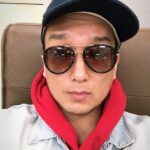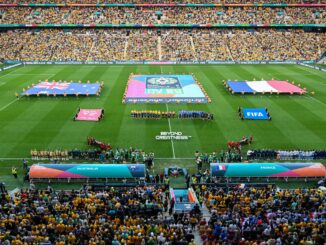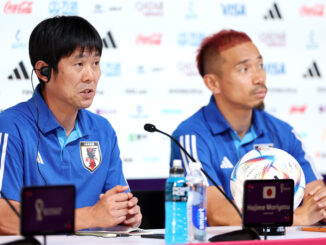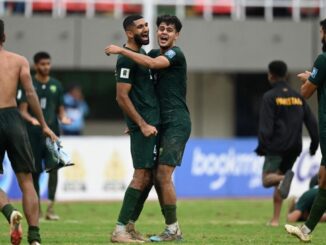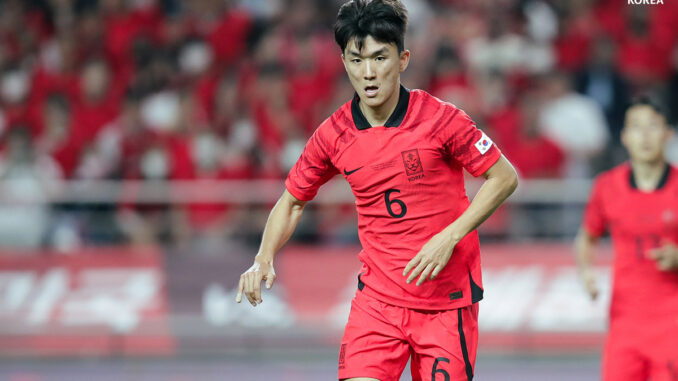

The Asian Game’s coverage of the FIFA World Cup Qatar 2022 is proudly sponsored by SMC.
Certainly, Hwang In-beom is having an eventful year. Until February, the South Korea midfielder was touted as one of the best midfielders in the Russian Premier League at Rubin Kazan. Then, a series of unexpected events began unfolding.
Hwang broke his big toe in Rubin Kazan training and during what should have been a brief stay in Korea for treatment, Russia started their well-documented invasion of Ukraine. As returning to Rubin Kazan became virtually impossible for the 26-year-old, he made a surprising decision to join FC Seoul on a short-term loan deal.
For Hwang, the return to the K League was always going to be a stopgap measure before a swift return to Europe.
Case in point, Hwang joined Greek giants Olympiacos on a permanent deal last July. He’s now less than two weeks away from making his World Cup debut when Korea take on Uruguay in the Group H opener in Qatar on 24 November.
“By the time I retire, I’ll probably have more stories to tell than any other player,” Hwang told The Asian Game in an exclusive interview.
“When people say, ‘You never know what will happen in life’, they’re right. In midst of so many unexpected situations, I do feel that I’m extremely lucky. I feel thankful to FC Seoul and even other K League clubs who showed interest in me, despite knowing that I’d only be playing for them for just three months.
“I’ve never expected to play in Greece until I came here, but after seeing the facilities and fan-base here, I feel that Olympiacos are a big club on their own right. I’m also thankful that a club like this saw value in my ability as a player.”
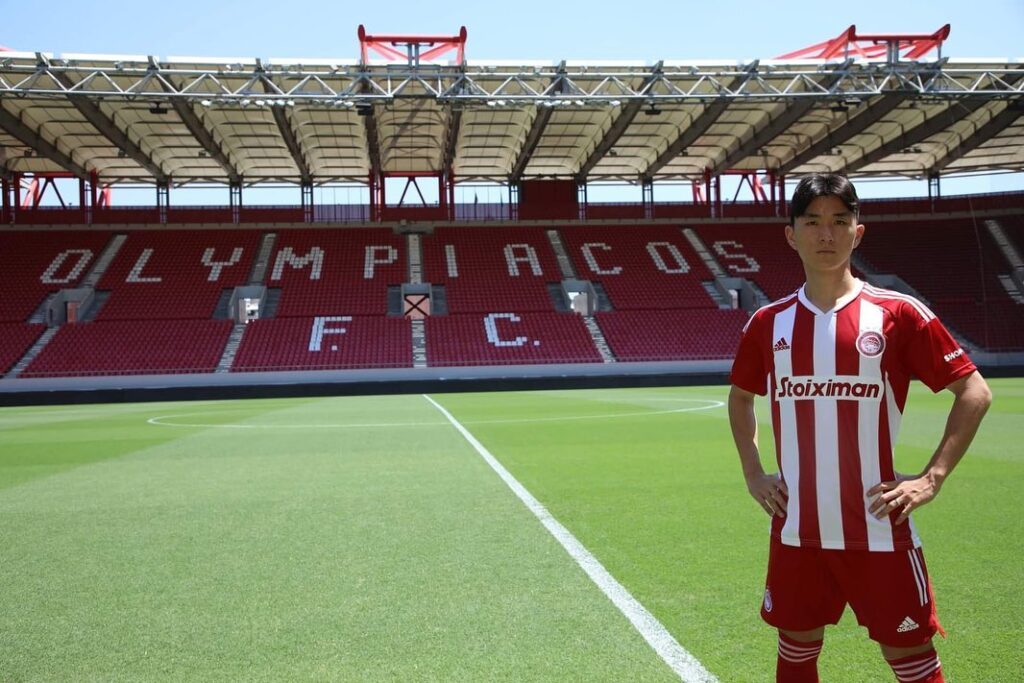
Recovering from a broken toe was more difficult than Hwang had imagined. Although he returned to the pitch in April following a two-month recovery, it took him quite some time to recapture his fitness, so much so that even in June, he was struggling for form in Korea’s friendlies against Brazil and Chile.
Hwang only began to play up to his usual standards in Korea’s third friendly in June against Paraguay. However, he suffered another minor knock in that game and again remained sidelined when Korea faced Egypt in the finale of their four-game series of friendlies to celebrate the 20th anniversary of the 2002 World Cup that they co-hosted with Japan.
Since then, Hwang has found his consistency again. He returned to FC Seoul to feature in three more games. He then played in Korea’s convincing 3-0 win over China in the EAFF E-1 Football Championship in July and left the national team camp to complete his move to Olympiacos, who provided him with an opportunity to make his Europa League debut; marking a gradual advancement in his career as he had briefly played in the Europa Conference League in the previous campaign at Rubin Kazan.
“The toe injury was quite concerning,” he said.
“Fortunately, my toe no longer has issues, but even during my time at FC Seoul, the injury forced me to put more pressure on my other foot and that affected my balance. I was not completely fit at all even when I was with the national team in June.
“FC Seoul manager An Ik-soo and his staff were so considerate of me and monitored my workload very delicately. As a result, I was able to reach my full fitness quickly after joining Olympiacos and now I can play 90 minutes consistently.”
As Hwang settled relatively quickly to life in Greece, his sight is now set on playing his best football for Korea in Qatar. Coincidentally, the interview with Hwang took place on 24 October, exactly a month before Korea’s first game in Qatar against Uruguay.
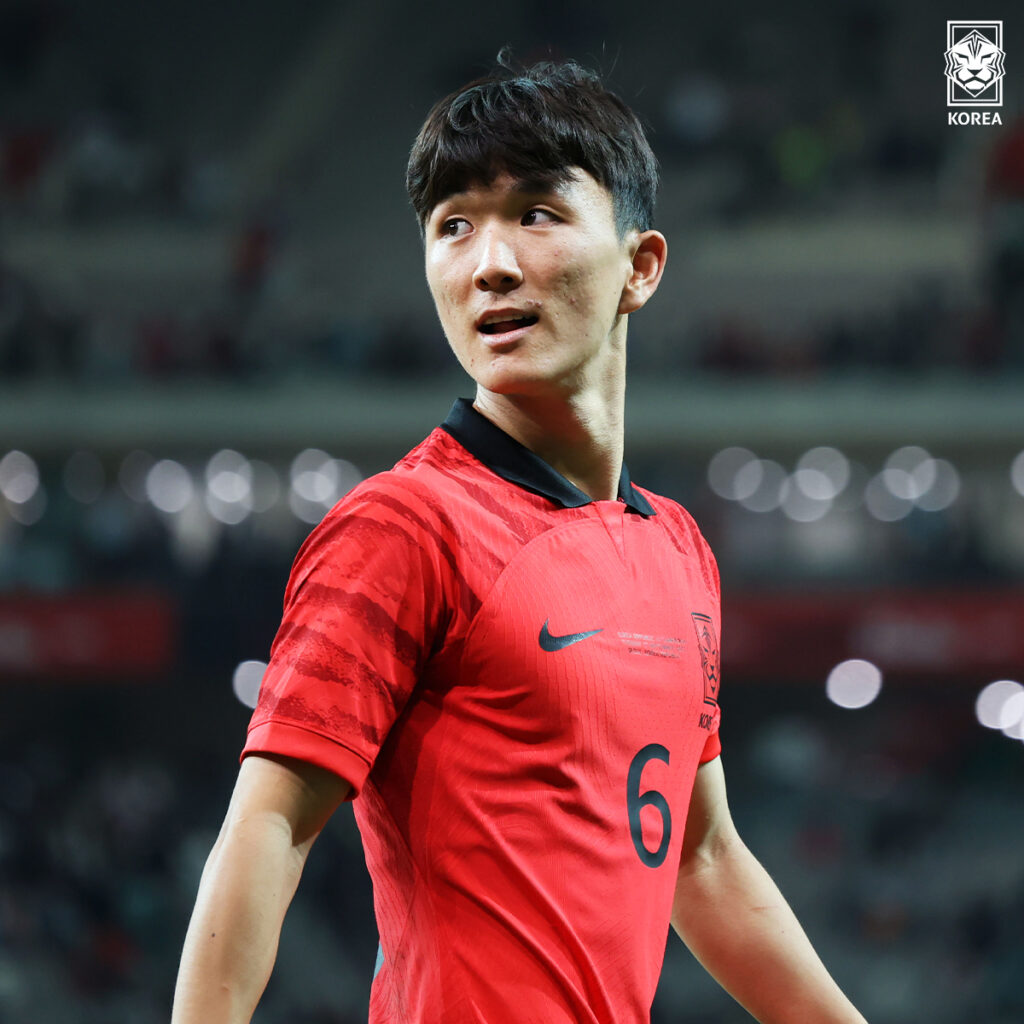
“The first game is so important,” he explained.
“That game will decide how our mindset will be for the second and third games. We have to pour everything and produce a good result in the first game to get closer to our ultimate goal at the World Cup. So I have the biggest expectation for our first game and that’s one game that I want to win the most.”
Truthfully, though, Hwang’s move to yet another non-top five European league this past summer inevitably left some fans back home disappointed. For days before his move to Greece was sealed, Hwang was linked to several Bundesliga and Ligue 1 clubs.
However, Hwang remains undeterred and is certain that moving from Korea to Russia to Greece has placed him on the right track to improve as a player.
During an interview with this writer in 2020 after he left Vancouver Whitecaps of Major League Soccer to join Rubin Kazan, Hwang stressed that the high intensity of pressing in the Russian Premier League will surely help him improve his game.
Interestingly, the RPL’s average PPDA (Passes played by opposition per defensive action) last season was 11.20 per 90 minutes. In comparison, the pressing in Bundesliga (11.27), English Premier League (11.92) and Ligue 1 (12.01) fell short of RPL’s intensity.
For Hwang, the move to Olympiacos has given him the chance to take the next step – learning how to break down an opposition’s low block.
Whereas at his previous stops in Daejeon, Asan, Vancouver and Kazan have demanded him to play counterattacking football in transition, Olympiacos are a side that have won 22 league titles in the last 26 seasons in Greece. At least at club level, playing for a team that enjoy such a high possession on a game-to-game basis is a new environment for Hwang.
“In Russia, most games are evenly matched, box to box affairs,” he said.
“In Greece, about two-thirds of the teams that we face sit below the halfway line and defend. This should help me to perform more effectively for Korea too, because although we’re preparing for the World Cup where we’ll likely play differently, we play similarly to Olympiacos throughout Asian qualifying every time.
“Learning how to play more creatively as a midfielder against teams that sit deep will help me find ways to make a difference in tight spaces.”
Olympiacos are currently averaging more than 60% possession per game in Greece. In the Europa League group stage this season, their average possession dropped to 48%, which is quite similar to the football that Hwang played with Rubin Kazan, who last season averaged 44.7% possession in Russia.
Such a variety in playing style at Olympiacos, says Hwang, will surely help to consolidate his skill-set as a more complete midfielder.
“In the Europa League, we defend more solidly and hit oppositions on the counter compared to how we play in Greece,” Hwang remarked.
“Even in Greece, I’ll be experiencing something different whenever we face the likes of PAOK, Aria, Panathinaikos and AEK. For me, the games here demand me to play in different patterns, so I’m learning to adapt to different styles during games and also on a game-to-game basis.”
As for Korea, Paulo Bento’s side finished the final round of Asian qualifying with seven wins, two draws and just one loss. Outside of losing in UAE after their qualification was sealed, Korea’s qualifying campaign was nearly flawless.
Despite the impressive showing throughout Asian qualifying, though, Bento’s side ran into more challenges in the friendlies that followed. In nine games that Korea have played since the end of Asian qualifying, losing 5-1 and 3-0 to Brazil and Japan, respectively, has seemingly brought the high expectations of the Korean fans back down to earth.
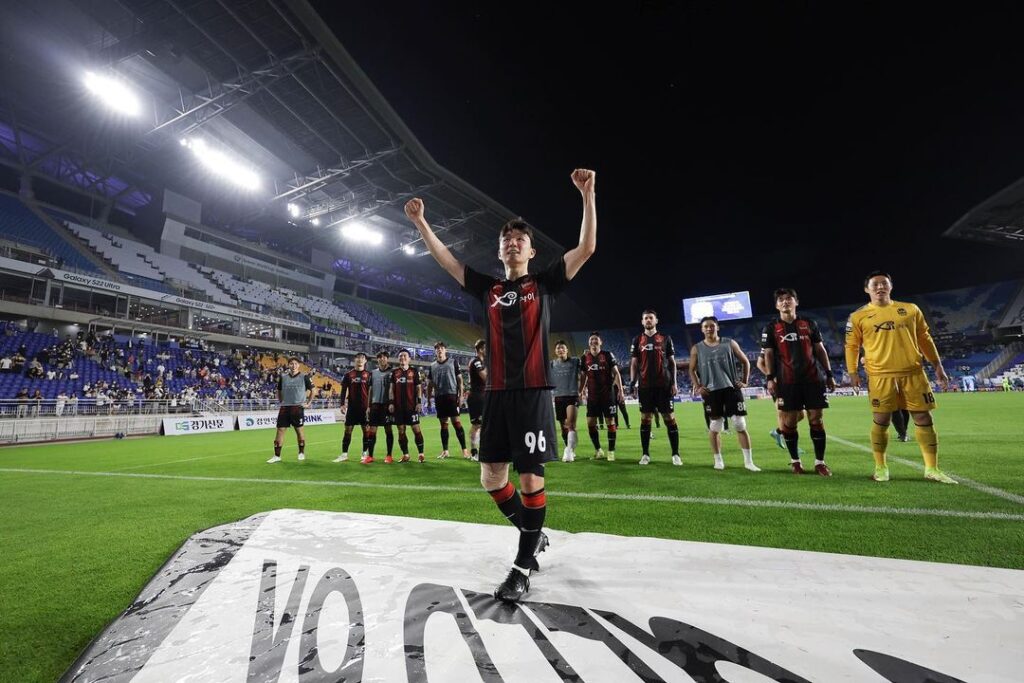
Hwang also admitted that having to play a different style of football against teams outside of Asia has posed difficult challenges for Bento’s men.
“The teams we faced in June and September hardly sat back like our Asian opponents did,” he observed.
“We played Brazil, Chile, Paraguay, Egypt, Costa Rica and Cameroon. Some of them pressed extremely high, whilst some didn’t, but Brazil and Paraguay in particular were devastatingly strong in their pressing. Even Chile, although their players were small in stature, they were so gritty in their fight for the ball.”
In the final round of Asian qualifying, Hwang averaged 23.3 forward passes per game. No other player registered more successful passes into the final third in both Groups A and B in Asian qualifying.
Although Hwang’s forward passes dropped to ten against Brazil and 14 against Chile in June, it spiked back up to 23 against Paraguay. In September, he has recaptured his form completely, playing 33 and 23 forward passes against Costa Rica and Cameroon.
“Brazil were another level, so playing against them was a completely different experience,” the 26-year-old said.
“That game still disappoints me, but it was also the most important game of my career, because it made me realise that if I ever get to play against a big team like them again, I need to prove that I’ve improved as a player. Cameroon was also a new challenge for us, because they were so physical.”
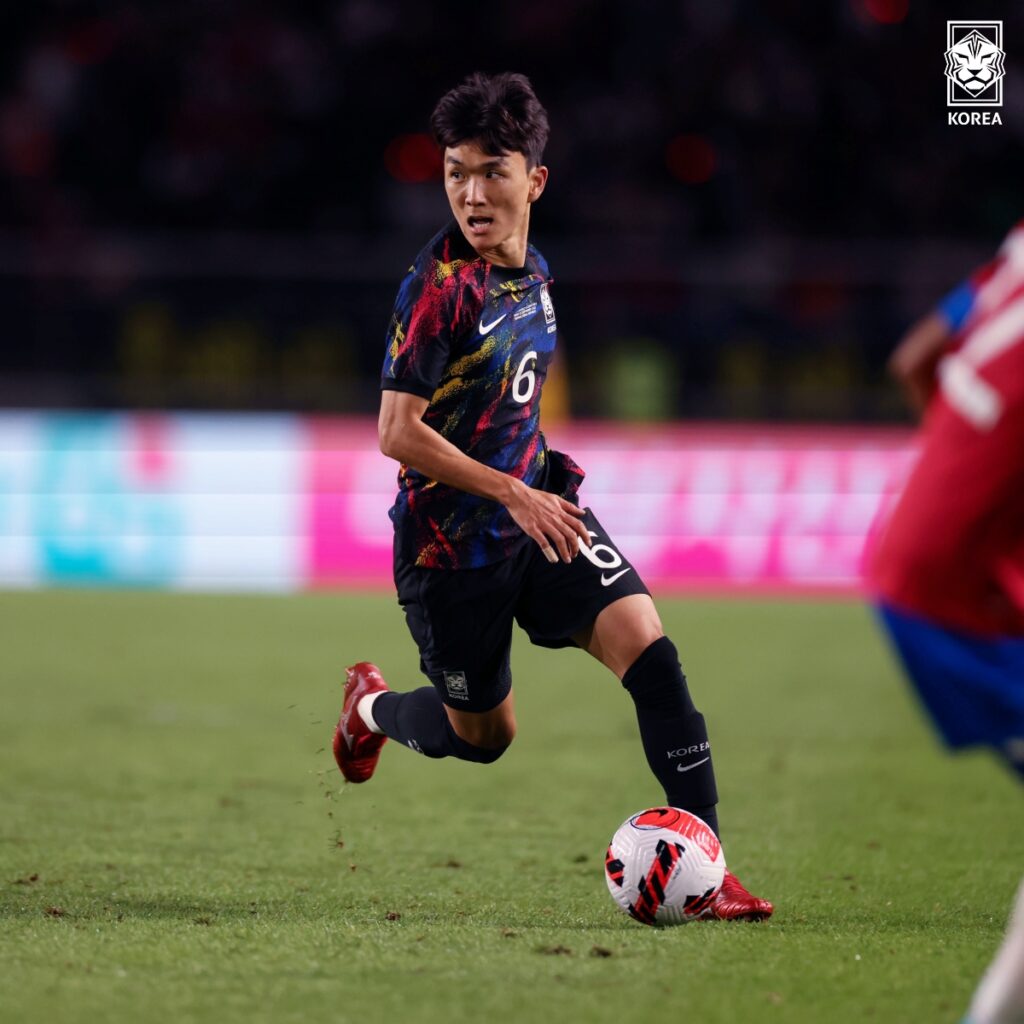
In Korea, Bento’s football philosophy is often overly simplified by the public. The media often call it “possession football” or “buildup football.” The criticism is that Bento’s obsession with possession and passing out of the back is not suitable for Korean players’ characteristics and that the former Portugal manager has done too little to correct his team’s defensive flaws.
“It’s true that friendlies in June and September exposed many of our flaws, but I’d also say that there were many positives,” Hwang said.
“Then again, in the world of top-level professionals, weaknesses are always more highlighted than strengths. We understand the fans’ concerns, but at least for us internally, we feel like we’re well prepared.
“Our chemistry is clearly there after playing together for four years under one manager. We’re confident. That doesn’t mean that I can guarantee our place in the last-16, but I’m confident that in the three games that we’re guaranteed to play in Qatar, we can play the type of football that we’ve been preparing to play on the world’s biggest stage.”
Hwang emphasised that such a simple assessment of Bento’s football by the media has played a major role in creating a consensus that Korea national team are simply obsessed with driving up possession and playing aimless short passes.
He added that Korea’s strongest weapon when they take on Uruguay, Ghana and Portugal in Group H could be their ability to press effectively higher up the pitch and quickly attacking the opposition goal.
“A lot of people think that we’re only focused on passing the ball out of the back with short passes,” he said. “But I’m more excited about what we can do immediately after we win the ball. Against Costa Rica in September, we created so many chances, and a lot of those chances were created after we forced the opposition to make mistakes with our pressing.
“We have forwards with sharp movement and speed to attack the opposition box quickly. I have belief that we can take advantage of that ability at the World Cup.
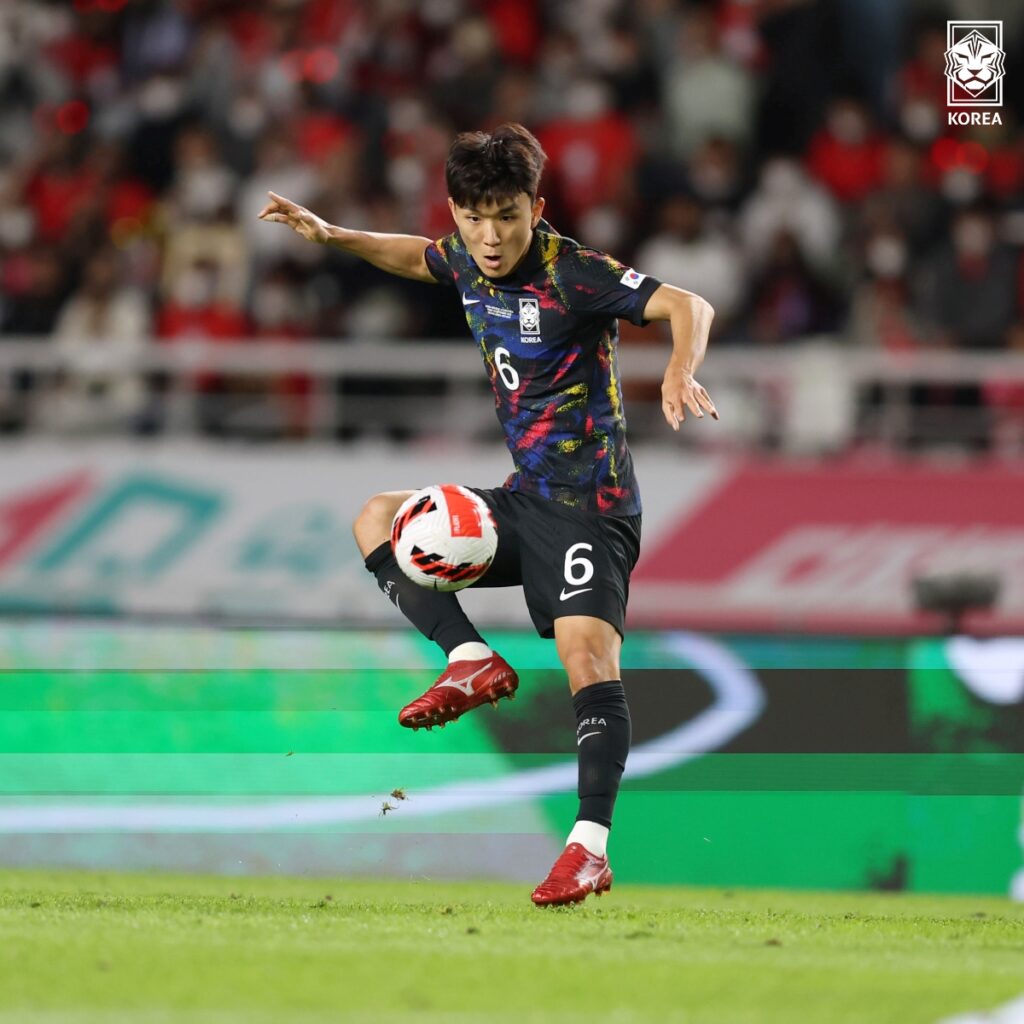
“I know many fans are worried about the mistakes that we can make when we play out of the back, but we’re very much aware that we’d have to be more careful in certain areas of the pitch. Our coaching staff will analyze each game for us and the players will train accordingly to prepare.
“I’m in the process of training my mind right now. I do not want to go to the World Cup and suffer any kind of stage fright. Sure, I’ll be nervous to finally play on the stage that I’ve always dreamed of, but I’m preparing myself to help the team by enjoying and playing my best football.
“I have belief that I can showcase my biggest talents at the World Cup. I hope the fans cheer us on. The World Cup should be a big party. For us to produce a good result there, we need all the support and love from our fans.”
At Olympiacos, there are several people that Hwang can lean on for advice to help him prepare for the World Cup. Olympiacos manager Michel, a former Real Madrid midfielder who famously netted a hat-trick against Korea at the 1990 World Cup in Italy, has already had face-to-face meetings with Hwang this season.
“He told me that he was surprised in a good way when he first saw me play,” he said.
“He played in the same position as me when he was a player himself. He demands a very specific style of movement and passing from me. He’s someone who had a very successful career for a club like Real Madrid. My mindset is to learn as much as I can from him.”
Two other former Real Madrid stars, Marcelo and James Rodriguez, who’ve joined Olympiacos recently, have also been helpful resources for Hwang. For Hwang, simply training with teammates who’ve reached the pinnacle of European football at Real Madrid has been a surreal experience.
“I see Marcelo pulling off his trademark crosses and switch passes on the volley, which simply just wows me every time,” he said.
“He does things like that so naturally. James is also just a different type of player, because his touches and trajectory of passes are so unique. When I have the ball in deep positions, James is usually the one who’s positioned right in front of me, so I get to see how he plays from a very close angle.
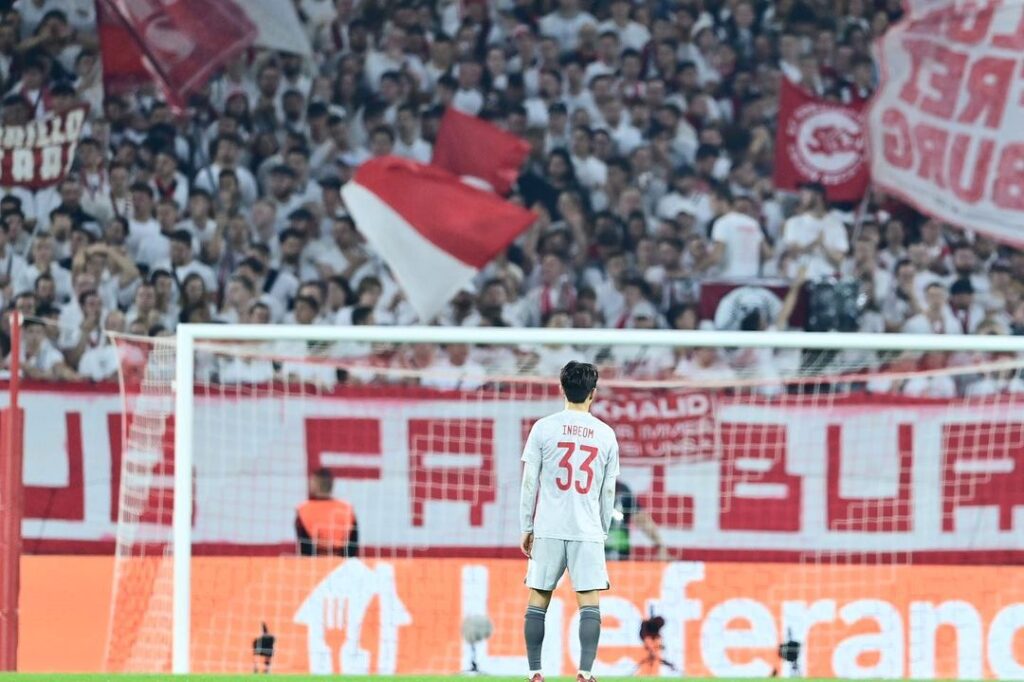
“I’m learning his ability to find different passing angles and how he controls the trajectory of his passes. Playing with James specifically has been an inspiration for me. At times, Marcelo and James have complimented me in training. I’ve been praised before by many coaches, but their compliments simply hit me differently (laughs).”
Hwang is hoping that his experiences since making his international debut in 2018 will culminate in a successful campaign for Korea in Qatar.
As Korea set their sights on completing a four-year cycle under Bento, Hwang is viewed as one of the symbolic players representing a new era for Korean football. In the tumultuous period for Korea between 2010 and 2018, six different managers were appointed. After taking charge in 2018, Bento has become the first manager in the history of Korean football to have led the national team for four years.
“There are obviously many positives to take from the stability that we’ve had for four years under one boss,” Hwang said, “but we’re aware that our work could be portrayed to be worthless unless we produce a result at the World Cup.
“We can talk all day about how much of this stability has helped Korean football, but in the end, what matters is the result. It’ll be up to us as players to prove that the work we’ve put in over the last four years has value. As players, we have to take that responsibility for Korean football and our coaches to continue to improve.”
“What I can promise is that over the course of 270 minutes that we’ll play in Qatar, we won’t spend even a second with our guards down. If we can do that, we’d be putting ourselves in a position to hope for a miracle. If the fans get behind us to do that, I’m confident that we can repay their faith.”
Photo: Facebook/KoreaFootballTeam
Listen to The Asian Game Podcast as we preview Korea Republic ahead of the upcoming FIFA World Cup

